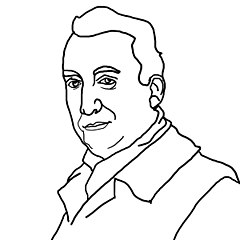If we’re committed to individual rights, then we want a society in which freedoms are not arbitrarily restricted; you should get to exercise your preferences so long as this doesn’t harm someone else. But consider a tiny society of only two people, Lewd and Prude, and a copy of Lady Chatterley’s Lover. Lewd would prefer to read the book rather than have it disposed of unread, but even more than that he’d love to see Prude forced to read it:
Prude reads > Lewd reads > no one reads
Prude would like to see the book disposed of but, short of this, would prefer reading it himself to seeing Lewd enjoy it:
no one reads > Prude reads > Lewd reads
How should a social planner rank these three outcomes? If we’re determined to respect individual rights, then Lewd and Prude should each get to decide whether to read the book; Lewd shouldn’t be prevented from reading it, but Prude shouldn’t be forced to. So we’ll let Lewd’s preference decide between the outcomes “Lewd reads” and “no one reads,” and we’ll let Prude’s decide between “Prude reads” and “no one reads.” But that gives
Lewd reads > no one reads
and
no one reads > Prude reads,
so, for consistency, the social planner arrives at the ranking
Lewd reads > no one reads > Prude reads
and gives the book to Lewd to read.
But both Lewd and Prude would have preferred that Prude be given the book! Harvard economist Amartya Sen argues that this challenges the notion that markets can allocate resources efficiently while respecting individual freedoms.
(Amartya Sen, “The Impossibility of a Paretian Liberal,” Journal of Political Economy 78:1 [1970], 152-157.)









